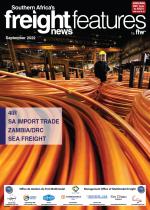Small-scale traders carry goods valued at millions of dollars a day across Zambia’s borders, mainly by bicycle and on their heads.Research undertaken by the Common Market for Eastern and Southern Africa (Comesa) has found that 66% of traders use bicycles as their means of transport, while 20% carry the goods on their heads.The definition of informal or small-scale cross-border trade is “a form of trade that is unrecorded in a country’s official statistics and carried out by small businesses or individuals across borders of neighbouring countries”.Exports from Zambia far outstripped import volumes, researchers found.It is estimated that informal trade imports into Zambia from its neighbours have grown five-fold from $13.3 million in 2019 to $77.2m in 2021.The export value rose two and a half times, from $81.02m in 2019 to $206.08m during the same period.The highest volume of informal trade was recorded at the Kasumbalesa border with the Democratic Republic of Congo (DRC).The main informal export products are fish and fish products, with rice being the main import.Informal traders have also been affected by delays at Kasumbalesa.Southern Africa Cross Border Traders Association secretary general Jacob Makambwe has issued a statement saying his members are making huge losses as they are made to wait for up to a month to move goods into or out of the DRC.He called for the opening up of more border posts to reduce the strain on Kasumbalesa.Comesa is pushing for the formalisation of small-scale cross-border trade.“A lot of cross-border trade happens under the radar of customs officials and involves bypassing border posts, concealment of goods, under-declaration, wrong classification, underinvoicing and other similar concealment methods.“In addition to seeking to evade taxes or fees imposed by governments, traders also try to avoid administrative formalities in areas such as health, agriculture, security and immigration, which are perceived as costly, complex and time consuming.“On the other hand, because of their semiformal status, cross-border traders are subject to harassment, gender-based violence, and solicitation of bribes.“However, properly harnessed, this trade can also have positive macroeconomic and social implications and plays a critical role in poverty alleviation efforts by African governments,” state the coordinators of the Comesa Small Scale Cross-Border Trade Initiative.

